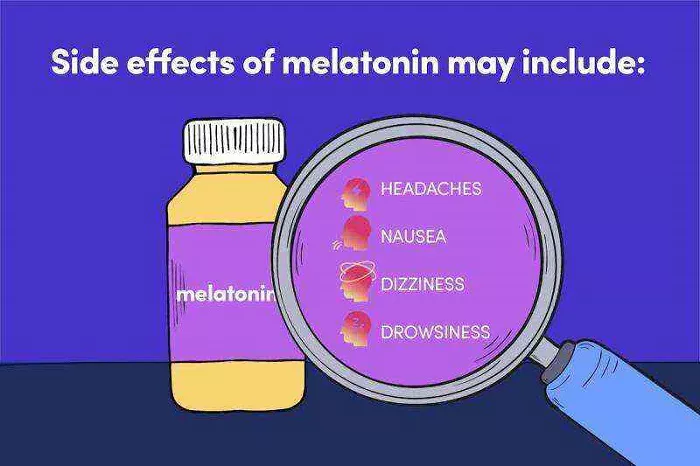Melatonin is a hormone that regulates sleep. It is often used as a supplement to help with sleep problems. But can it also affect depression? This article explores the relationship between melatonin and depression, and whether it is good or bad for people with this condition.
What is Melatonin?
Melatonin is a hormone produced by the pineal gland in the brain. It helps control your sleep-wake cycle. Your body makes more melatonin when it is dark, which helps you feel sleepy. Light decreases melatonin production, helping you wake up.
How Melatonin Works
Melatonin levels rise in the evening and stay high for most of the night. They drop in the early morning, helping you wake up. This cycle is crucial for maintaining a healthy sleep pattern.
Melatonin Supplements
Melatonin supplements are often used to treat sleep disorders like insomnia or jet lag. They are available over-the-counter in many countries. People take them to help fall asleep faster or adjust to new time zones.
Melatonin and Depression: The Connection
Depression is a mental health condition that affects mood, energy, and sleep. Many people with depression have trouble sleeping. This has led researchers to study whether melatonin can help.
The Role of Sleep in Depression
Poor sleep is both a symptom and a risk factor for depression. Lack of sleep can worsen depression symptoms. Improving sleep quality might help manage depression better.
Melatonin’s Effect on Mood
Melatonin not only regulates sleep but also affects mood. Some studies suggest that melatonin can have antidepressant effects. Others indicate it might worsen depression in some cases. Let’s explore both sides.
Potential Benefits of Melatonin for Depression
Improving Sleep Quality
One of the main benefits of melatonin is its ability to improve sleep. Better sleep can lead to improved mood and reduced depression symptoms. For people whose depression is linked to poor sleep, melatonin might be helpful.
Regulating Circadian Rhythms
Depression can disrupt your body’s internal clock, or circadian rhythm. Melatonin helps regulate this rhythm. By aligning your sleep-wake cycle, melatonin might help stabilize mood.
Antioxidant Properties
Melatonin has antioxidant properties. It can protect brain cells from damage. This might be beneficial for people with depression, as oxidative stress is thought to play a role in the condition.
Potential Risks of Melatonin for Depression
Worsening Symptoms in Some Cases
While melatonin can help some people, it might worsen depression in others. This is because melatonin can lower dopamine levels. Dopamine is a neurotransmitter that affects mood and motivation. Lower dopamine levels might lead to feelings of sadness or lethargy.
Daytime Drowsiness
Taking melatonin can cause daytime drowsiness. This can make it harder to function during the day and might worsen depression symptoms. It’s important to take melatonin at the right time to avoid this side effect.
Interaction with Antidepressants
Melatonin can interact with certain antidepressants. For example, it might increase the sedative effects of some medications. This can lead to excessive drowsiness or other side effects. Always consult your doctor before combining melatonin with antidepressants.
What Does the Research Say?
Studies Supporting Melatonin Use
Some studies suggest that melatonin can improve sleep and mood in people with depression. For example, a 2017 study found that melatonin improved sleep quality and reduced depression symptoms in older adults.
Studies Showing No Benefit or Harm
Other studies have found no significant benefit of melatonin for depression. Some even suggest it might worsen symptoms in certain individuals. More research is needed to understand these mixed results.
Individual Variability
The effects of melatonin can vary from person to person. Factors like the severity of depression, sleep patterns, and overall health can influence how melatonin affects you. This makes it hard to draw broad conclusions.
How to Use Melatonin Safely
Consult Your Doctor
Before starting melatonin, talk to your healthcare provider. They can help determine if it’s right for you and recommend the appropriate dosage.
Start with a Low Dose
If your doctor approves, start with a low dose of melatonin. This can help minimize side effects. The typical dose ranges from 0.5 mg to 5 mg, taken 30 minutes to an hour before bedtime.
Monitor Your Symptoms
Keep track of how you feel after taking melatonin. Note any changes in sleep, mood, or energy levels. This can help you and your doctor assess its effectiveness.
Avoid Long-Term Use
Melatonin is generally safe for short-term use. However, long-term effects are not well-studied. Avoid using melatonin for extended periods without medical advice.
Conclusion
Melatonin can be a helpful tool for improving sleep, which might benefit some people with depression.However, it’s not a one-size-fits-all solution. While some studies suggest potential benefits, others indicate risks. The key is to use melatonin cautiously and under medical supervision.If you’re considering melatonin for depression, consult your healthcare provider.
Related topics:
- 10 Best Supplements For Menopause Brain Fog
- What Vitamins Help The Immune System For Women’s Health?
- The 8 Best Collagen Peptides For Women


